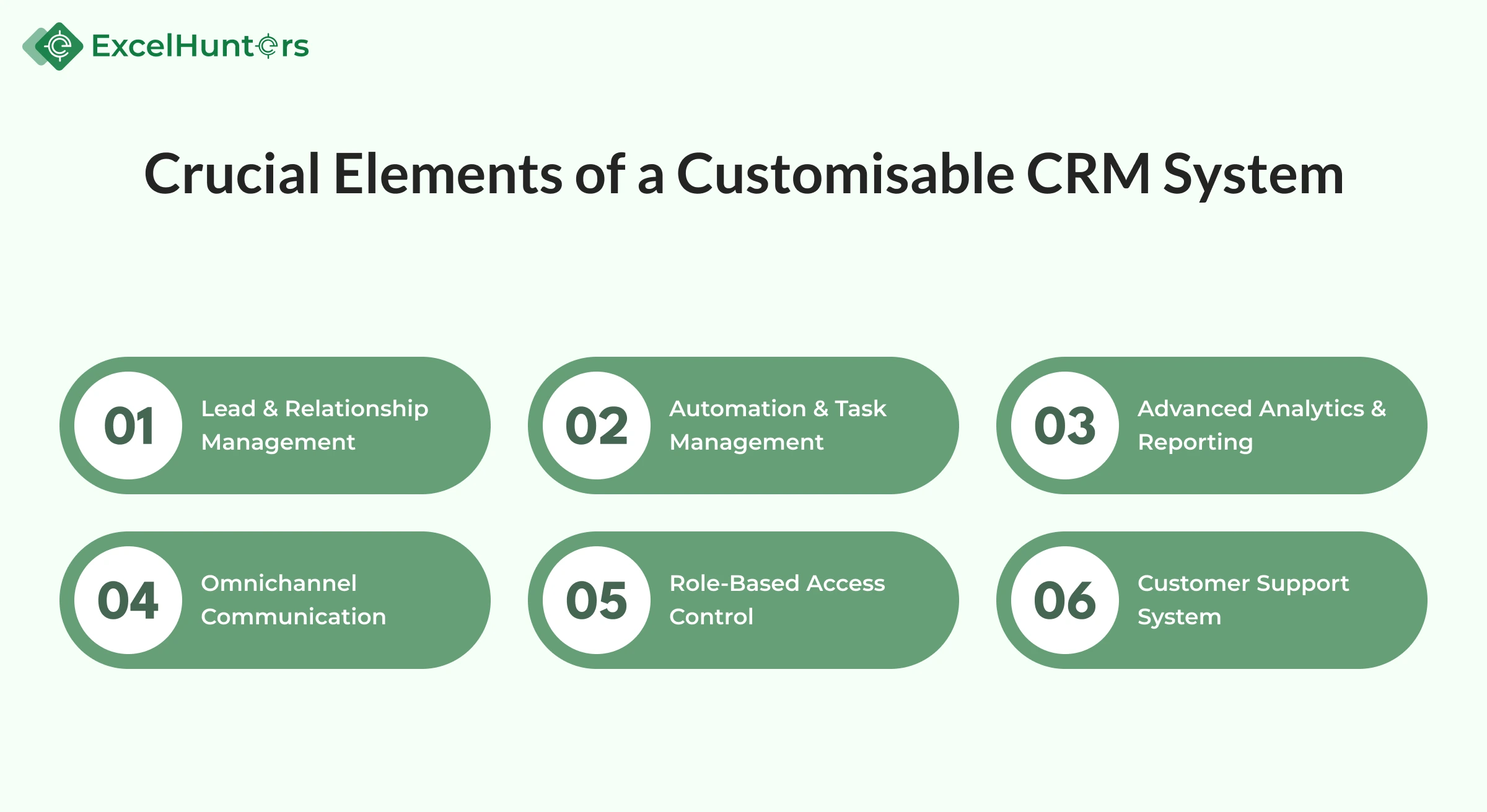Crafting Bespoke CRM Solutions: Tailoring Customer Management to Your Needs
Building strong relationships with customers is crucial for success in today’s business world. If a company wants to better manage their interactions with customers, streamline their sales processes, and provide better customer service, they need a customer relationship management (CRM) system. On the other hand, prefabricated customer relationship management systems might have flaws that prevent them from being a perfect fit for your company or industry.
To overcome this obstacle, a customised CRM solution is necessary. A customised CRM, in contrast to generic CRM platforms, is tailor-made to meet the specific needs of your business. It streamlines integration with your current workflow, increases productivity, and removes unnecessary features.
What are the Benefits of a Custom CRM Solution?
Problems with compatibility, duplication of features, and inability to scale are common when companies choose generic CRM solutions. These problems can be easily solved with a custom CRM system that adapts to your company’s needs. The main arguments in favour of a tailored CRM are as follows:
1. Tailored Solutions for Your Company
With a bespoke CRM, you can get an intuitive interface that works with your processes. Bespoke customer relationship management software is built around your processes, unlike generic CRMs that force you to conform to predefined features. Every feature is designed to work with your business model, from tracking customer service to managing your sales pipeline.
2. Incorporating Current Tools Effortlessly
One big problem with pre-made CRM systems is how little they can integrate with other systems. A typical CRM might not integrate well with the many software applications used by many companies for accounting, marketing, enterprise resource planning (ERP), or customer support. Integrating a custom CRM with all of your key tools creates a unified data ecosystem, which in turn boosts efficiency.
3. Enhanced User Satisfaction and Uptake
Low adoption rates caused by complex user interfaces are a big problem for companies using generic CRMs. Complex navigation is a common source of employee frustration and wasted time. Your team will quickly adapt to a custom CRM that has an easy-to-navigate interface, which will boost productivity.
4. Improved Protection of Information
Businesses prioritise data protection. There is a potential security risk with standard CRM solutions because they store data on shared cloud servers. Protecting sensitive customer information is our top priority. Our custom CRM offers advanced security features like encryption, access control, and on-premise hosting options.
5. Future-Proofing and Scalability
Your needs for customer management will change as your business expands. Problems with scalability and performance might arise with a generic CRM. Your company can add features, expand functionality, and scale without limits with a custom CRM solution because it is built to grow with your business.
Crucial Elements of a Customisable CRM System

Your company’s unique requirements can be considered while crafting a CRM system from the ground up. Some of the most important parts are listed below:
1. Relationship and Lead Administration
Every company needs a system that can efficiently track leads and organise customer data. A custom CRM allows for better decision-making and personalised engagement by providing a central database that stores all customer interactions, preferences, and history.
2. Streamlined Process and Job Administration
Reducing manual tasks and increasing productivity are both made possible through automation. Businesses can automate lead assignment, appointment scheduling, and follow-up emails with a custom CRM. This way, instead of wasting time on mundane administrative tasks, your team can concentrate on more valuable endeavours.
3. Cutting-Edge Analytics and Reporting
For businesses to thrive, data-driven decision-making is essential. Sales trends, customer behaviour, and team performance can be better understood with the help of thorough reporting tools that come standard with a custom CRM. Data visualisation and real-time tracking of key performance indicators (KPIs) are both made possible through the creation of user-defined dashboards.
4. Various Types of Communication
Live chat, social media, email, and phone are just a few of the ways that customers can communicate with companies. By integrating all channels of communication, a custom CRM guarantees that no customer query is left unanswered and offers a smooth omnichannel experience.
5. Control via Roles
Access to different tiers of data is necessary for various departments. An integral part of a custom CRM is role-based permissions, which boost efficiency and security by limiting access to data that isn’t directly related to an employee’s job.
6. Ticketing and Customer Support System
Businesses can efficiently manage customer enquiries with a CRM that has a well-integrated helpdesk and ticketing system. Timely resolution of customer issues is ensured by features like ticket assignment, escalation, and response tracking.
A Custom Customer Relationship Management System’s Methodology
There are several steps to take when building a CRM solution from the ground up to make sure it suits your company’s specific needs. Included in the development process are:
1. Analysing Needs and Making Plans
Identifying the requirements of your company is the initial stage in creating a customised CRM. Examining existing CRM limits, workflow bottlenecks, and feature requirements is part of this process.
2. Architecture and Design of the System
Arranging the database structure, user interface, and system architecture follows requirements gathering. At this stage, we check that the CRM is secure, easy to use, and scalable.
3. Design and Personalisation
Construction of essential features, integration of third-party tools, and verification of CRM process alignment constitute the actual development process.
4. Evaluate and Enhance
The custom CRM is thoroughly tested to find and fix bugs before it is deployed. Security audits, performance evaluations, and functional testing are all part of this.
5. Training and Deployment of Employees
Deploying the system in a live environment follows testing and optimisation. Achieving a seamless transition and optimising productivity necessitates holding training sessions for all employees.
6. Maintenance and Support That Never Ends
As a company expands and new trends emerge in the industry, a custom CRM will need frequent updates and maintenance to stay relevant. The continued efficacy and safety of your CRM is guaranteed by a specialised support staff.
Wrapping Up: Where Do We See Custom CRM Solutions Going?
One of the best choices a company can make is to invest in a custom customer relationship management system. You can improve efficiency, strengthen customer relationships, and create a scalable system that grows with your business by customising the CRM to fit your unique operations.
Looking for
Consultations?Our Expertise
- 8 + years of experience
- Adept Developers
- Excel at Agile Development
- Cost-Effective


